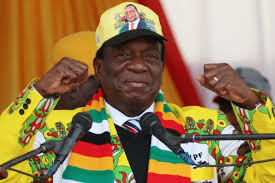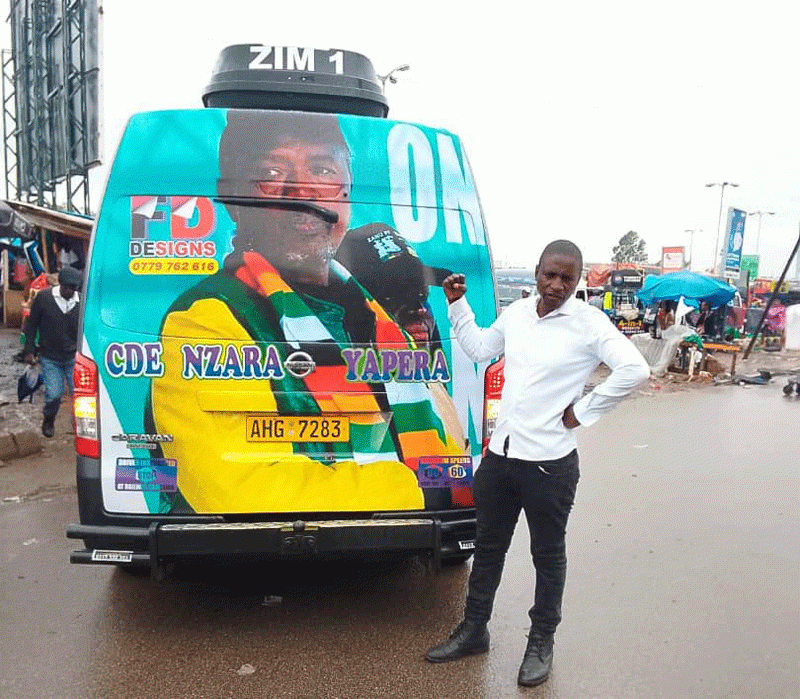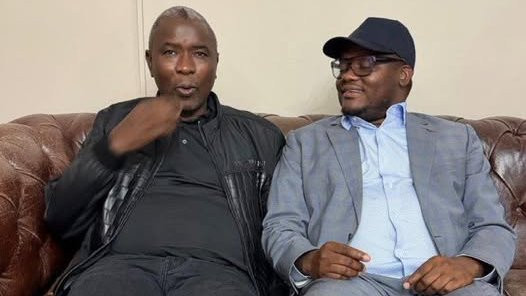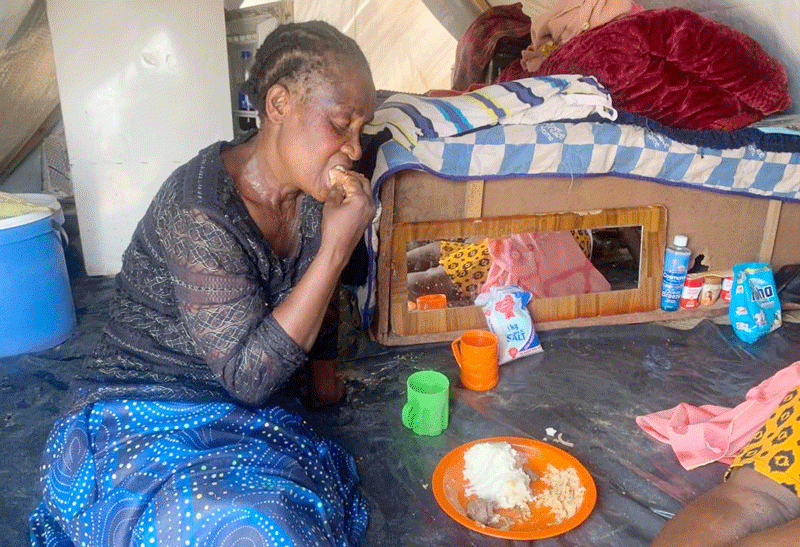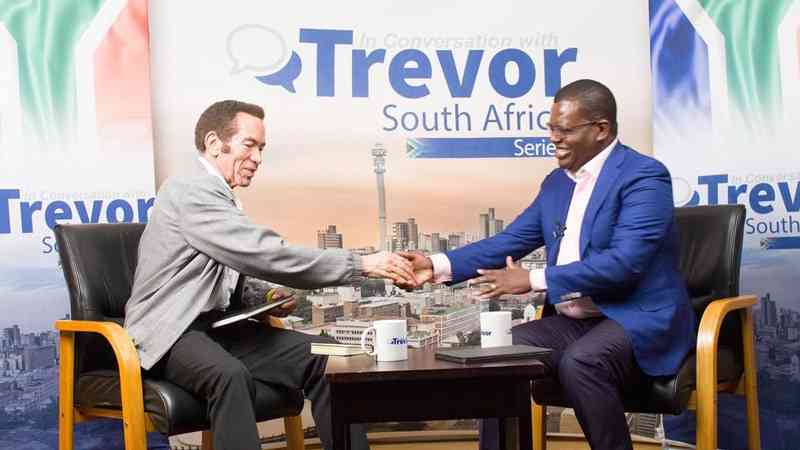
Former Botswana president Seretse Ian Khama says he was forced to speak out about bad governance and persecution of late president Robert Mugabe’s critics because it went against the ideals of the liberation struggle.
Khama (IK), who was a fierce Mugabe critic, told Alpha Media Holdings chairman Trevor Ncube (TN) on the platform In Conversation with Trevor that it did not sit well with him to see Zimbabweans enduring the same problems they faced during colonial rule.
He also spoke about his life in exile and alleged persecution by his successor. Below are excerpts from the interview.
TN: Your Excellency, Seretse Ian Khama, thank you so much for this opportunity to have this conversation.
IK: You are welcome. Very welcome.
TN: We find you in South Africa, and not in Botswana, and you have been here for a while.
- Zim headed for a political dead heat in 2023
- Zimcodd red flags wage erosion
- Village Rhapsody: Zimbabwe needs to reduce teen pregnancies
- Community trailblazers: Chipo Gozho: An inspiration to today’s women
Keep Reading
Share with us, with the audience across the world, why we find you here and not in Botswana?
IK: Well I am here primarily because of persecution.
We, in Botswana for a long time thought that we were immune from what we have seen in some parts of the continent.
Leaders who are driven by greed, corruption, self-interest, undermining democracy, assuming that being in office or being in power is only about themselves and not thinking about the people they are supposed to lead.
We have been hit with this tsunami in Botswana by this man (President Mokgweetsi) Masisi, who when he came into office completely overturned the decades of democracy and the reputation we had earned ourselves as a country.
I think most people on the continent and further field would know about the reputation that we in Botswana were proud of.
That all our forbearers worked hard to build, but that has now been totally undermined and this man is just on a mission for himself.
There are many examples that I can give you.
TN: Let us go to those.
Give us the specific really painful examples, ways of the decades of democracy that the whole world admires as far as Botswana is concerned? What are those specific issues?
IK: Rigging of Elections in 2019.
TN: Okay.
IK: They rigged the elections, and that is a cornerstone of democracy when people have the opportunity to vote into office a party of their choice which would become government, and its leader would become the president. So that was the first thing.
Secondly, intolerance.
Freedom of speech, freedom of association is all undermined in Botswana.
If you are somebody who is assumed to be with the opposition or an associate of mine you are targeted, and the intelligence service has been weaponised in order to go after his opponents.
Undermining of the rule of law, where we have seen several judgments in our courts where they have determined that actions by the state have been illegal, have been unlawful.
We have seen attempts to capture judges, in fact successfully so in fortunately a few cases, not across board.
We have even had somebody, a prominent traditional leader who came out once publicly and said how Masisi had told her that he had spoken to judges on how to rule in a particular case.
So, the whole system, the law and order, you know the use of the police, the intelligence service, the anti-corruption agency have all been compromised.
And charges fabricated against people like myself.
Our families have been detained, their wives have been detained and that is the order of the day. Yeah.
TN: Your Excellency, you worked with President Masisi for a long time.
You were also responsible for hand-picking this man to succeed you.
Did you not see these telltale signs that this man was not a democrat?
And what responsibility do you take for having given the Botswana people this man?
IK: I never saw it when I was...
TN: You ever saw it?
IK: I did not see it, but people came to me who did see it.
You know when you are a president, you have a whole host of officials, people in the private sector who come to you and talk to you about what is going on, but despite that there are certain things that you will not pick up.
If somebody wants to fool you, you are likely to be fooled, but the first warning signs came to me when some of my ministers came to me and pleaded with me to remove him as vice president, that he would not be fit to be the president of the country.
I said why, they said this man is intolerant, he is divisive, he is immature.
They would come to my office in ones or twos and even in threes pleading with me that this man needs to go.
It got to the point whereby I just said look when I called in Masisi and said to him this is what ministers are saying about you, he would come with stories and everything about how I should be aware that these are probably people who want my job and that is why they are doing it, because in politics that can happen as well.
It got to the point I said look I do not want to be a messenger anymore, they come to me and tell me one thing, I call him he tells me another thing, so I said let us all get together.
We had a two-day session in cabinet with him where I said to them can you say to his face what you have told me and see if we can move forward from this and that is what happened.
Despite that I still stuck by him.
TN: So they spoke to you in front of him and they said to you what they had said in private?
IK: You know in our culture in Botswana people are respectful, although that is something else he has undermined.
Obviously, they would not say precisely what they would tell me in confidence, so they would put it in a fairly more gentle manner but still the message came out that there was a problem otherwise we would not have been sitting there for two days discussing the issue.
But like I said I still stuck by him. So, to answer the second part of your question, my responsibility as a result.
We are human, we make mistakes. I made a big mistake, bigger than most people because this has affected the whole country and it is a mistake I regret.
I have admitted that publicly in Botswana.
I have apologised to the nation for bringing this upon them and have said that I will do my utmost to ensure that I get them out of office at the next elections.
TN: I am really interested in the leadership lessons your Excellency, that this incident presents.
They say it is lonely at the top; and in a position as powerful as one that you had, you have the yes ministers who will come to you and tell you what you want to hear, you have others who politically perhaps might tell you the truth.
What are the leadership lessons?
You are lonely, you want to get advice that is genuine, that is authentic. Are there those people who are authentic when you have such a powerful position?
What are the leadership lessons from there?
IK: In my opinion, in my interaction with ministers and other senior officials, as much as there was respect for the position of president, but when they came to see me it was not to come and just say things that they wanted me to hear.
And precisely this example, for ministers to have come to me to say get rid of your vice president, in other countries they would have lost their jobs, because you were now challenging or querying the ability of a president to choose a credible person as vice president.
In Botswana then they did come forward freely and spoke their minds.
Not today because today you would hear ministers in their cabinets telling us, they tell me in confidence, how bad things are when they have meetings with him in their cabinet, in the country.
Recently they have been complaining a lot about his frequent travels.
I mean when I was addressing rallies recently virtually, you know I was saying to people that Botswana is the only country, most countries you have a Minister of Foreign Affairs in most countries.
Botswana is the only country in the world where the president is the minister of Foreign Affairs, because he spends all his time outside the country, and only comes to Botswana to visit us.
TN: I want to take you to a space where you said your mistake in giving the Botswana this president has affected the country?
But I want to suggest to you that it is affecting the region because of the alliances that he is making.
I mean his relationship with the President of Zimbabwe for instance, you were outspoken during Mugabe’s rule against corruption, against...
IK: Persecution. Undermining of democracy.
TN: Persecution. Now this man is coming in and is making alliances, those kinds of alliances.
So your responsibility your Excellency, extends beyond Botswana? What is your pushback?
IK: You know I was very much conscious of the fact that Botswana was a democracy.
And when we live in a global village as we do, you cannot just limit yourself to within your own borders if you are trying to make the world a better place.
When we had Zimbabwe, a neighbour right on our doorstep, and yet next door you had Mugabe who was doing the opposite to what we believed in.
Not that countries have to do what Botswana did, but there are certain fundamental basics that governments should follow if they call themselves democracies.
You cannot have a situation in Zimbabwe during the Smith regime where Zimbabweans fled the country, you had a situation where there were sanctions on the country, the majority were being persecuted.
Then in an independent Zimbabwe under Mugabe, Zimbabweans were still fleeing, they were still being persecuted, sanctions were still being imposed...
TN: In bigger numbers!
IK: Yes. So, we said well what is the difference between then and during Mugabe’s days?
The only thing that changed was the name of the country and the name of the leader, but otherwise it was business as usual.
And I did not believe that was what the Zimbabwe liberation war was fought for. It was not fought for that.
Even if others in the region wanted to not say anything publicly about it, but we did have Sadc protocols which talked about democracy.
So why are we not saying anything about it?
So that is why I said well I am not going to sit back, however many people are upset if you do not stand up and talk about it, it will perpetuate, but unfortunately, I was the only one.
TN: Your Excellency, you have formed the Botswana Patriotic Front?
Do you think that is what you have seen as far as president Masisi is concerned?
That you should not have done this?
Or your explanation would be I formed the opposition party because of ABCD?
Talk to me about why you decided to form the party?
IK: Well I did not actually form it myself, there were others who formed it who then invited me to come into it which I did.
Yes, indeed that was my crime, for leaving the ruling party and I left the ruling party because he and his party were violating aspects and articles of the constitution, which were put in place.
I mean, you know my father.
TN: Yeah.
IK: That I was part alongside others in forming the BDP. I was its leader for 10 years, and so I could see that what we thought was our foundation, and the principles to follow, were being undermined by him so I just said No this is not the party I remember, I do not recognise it anymore so I am leaving it.
And that was why that same year soon after I left it they tried to poison me. That is why when I was involved in the election campaign they fabricated these charges that I had stolen P100 billion, which by now even through the court process has been shown to be a fabrication. Even the chief justice in a letter to him said that that the thing was fabricated, and everybody knows that because if I had a P100 billion I wish, I would not be here for example, I would be on some luxurious yacht somewhere in the Mediterranean enjoying all the mansions I would have bought.

